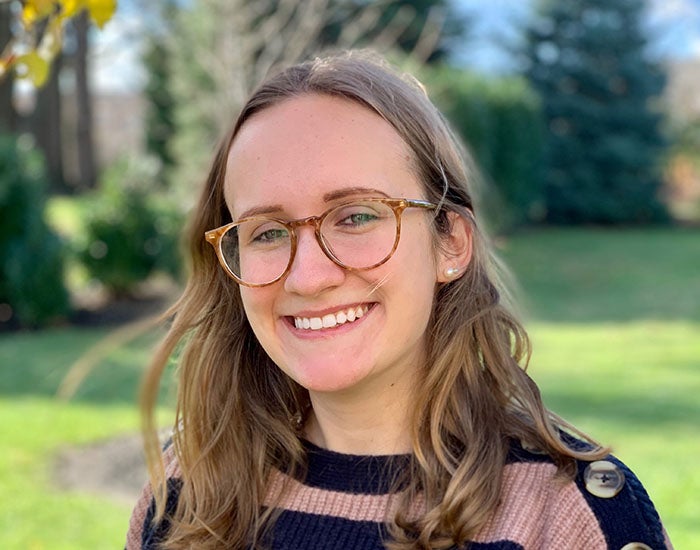
Annenberg in Public Service
Are you a Comm major interested in doing a public service internship this summer? Well, good news!
Comm majors interested doing a public service internship this summer have an opportunity to apply to Annenberg in Public Service (AIPS), which provides financial support for students doing un- or under-paid Comm related public service internships.
Eligibility
Who is eligible for AIPS?
- Current Communication majors and students who will declare the major prior to participating in the program.
- U.S. citizens, permanent residents, and DACA students pursuing an internship in the U.S.
- International students currently residing in the U.S. pursuing U.S.-based internships (such students must check with Penn Global regarding their visa eligibility).
Who isn’t eligible for AIPS?
- Seniors graduating in May or August and students on leave the spring before their summer internship.
- Students who will receive a salary or other funding of at least $5,000 for their internship.
- Students who have previously participated in AIPS.
- International students who have previously received CPT via the Annenberg School for a U.S.-based internship.
How do I know if my proposed internship qualifies?
- Internships must start after the last day of the spring semester, and end before the first day of fall semester.
- Internships must be in public service/non-profit settings. Examples include: government, policy centers, advocacy organizations, public and community media, and museums. Click here to read about previous examples of Comm-related internships in public service.
- Internships need to be communications-focused even if the organization itself isn’t. In other words, the internship work should in some way engage, and enhance, your communication skills and your understanding of how communication operates in public service settings.
- Internships need to be with established organizations with multiple full-time employees and publicly available information that includes their not-for-profit, government, or campaign status.
- As a general rule, internships cannot be with organizations with more interns than employees.
- Internships must be in person or hybrid; fully remote internships will not be considered.
- Internships should be at least eight weeks in duration and a minimum of 20 hours per week. Fewer weeks or hours will not be considered.
- Internships cannot be at Penn. (Certain exceptions may be made for Penn-affiliated organizations.)
- Fee-based internship programs (where you have to pay to participate) are not eligible for AIPS funding.
About the Program
What’s the funding fine print?
- Accepted students are eligible for a stipend of up to $5,000 for internships lasting a minimum of eight weeks with at least 20 hours per week. Total amounts awarded are based on number of hours the internship requires, and the amount of salary/funding they will receive from the internship or other institutional sources.
- Students must have received a documented internship offer at the time of application or must submit paperwork indicating that an internship offer will be made upon receipt of an AIPS fellowship.
- Selected students will be officially eligible for funding awards only when their formal internship offers are received, have been approved by Annenberg School for Communication staff, and have been formally accepted by the student.
- Stipends will be dispersed in one lump sum at the mid-point of the internship (i.e. after four weeks).
- AIPS funds are taxable according to U.S. law, and students must declare fellowship income on their tax returns. Students should budget so that funds are available for any taxes due. The Annenberg School Business Office cannot provide tax advice/guidance. Student questions pertaining to taxes should be addressed to a personal tax advisor or the University tax office at (215)-898-6291.
- Payments to international students will likely be subject to a 30% withholding unless there is an existing treaty with the student’s home country.
- Students are required to document in their application details of any funding or salary provided by the internship organization and whether they have applied for or received summer funding from another program or office. Subsequent updates on this information (eg: new fellowships received) should be emailed to internships@asc.upenn.edu.
- Students are required to disclose if their internship is cancelled or they do not complete the required number of weeks or hours at their internship. Any student who reduces their hours/weeks or drops out of, or is dismissed from, an Annenberg School-approved and funded AIPS internship may not receive their full stipend or may be required to return funds.
Can I get academic credit for a summer internship?
- Students who want to receive course credit for their internships by enrolling in COMM 3091 (formerly 491) in the Fall semester need to indicate this in their application. Accepted students are required to meet with Associate Dean for Undergraduate Studies Dr. Litty Paxton prior to the start of the internship to discuss COMM 3091-related expectations. An additional contract form will be needed for approved internships. (Click here for COMM 3091 registration requirements.)
COMM 3091 Summer Interest Form
What’s the timeline?
- Initial review of applications will begin on March 1 and will continue on a rolling basis through May 31, or until all funding has been allocated, whichever comes first.
- All AIPS funded students must submit a short Qualtrics survey about their internship experience which will be sent to them in August.
How to Apply
Fill out the following Qualtrics form. Please note this requires uploading your resume.
Finding Internships
- Penn’s Career Services: How to search for an internship
- Penn In Washington’s Internship Database
- College of Arts and Sciences Internship Page
- Handshake (via Penn’s Career Services)
- Idealist.org

Applying Classroom Experiences
“I received funding to work as a Communications Intern at the Center for International Environmental Law (CIEL). Working at CIEL reaffirmed my interest in working within the realm of issue-based activism, particularly environmentalism and human rights. I learned that skills from Comm can really be applied to any area, industry, or sector.” — Gillian Diebold C'21, Suburban Philadelphia
